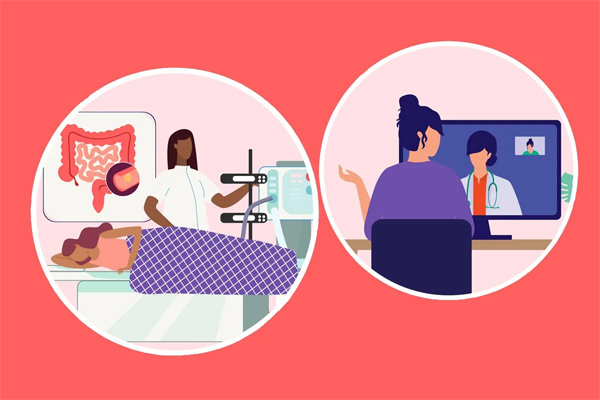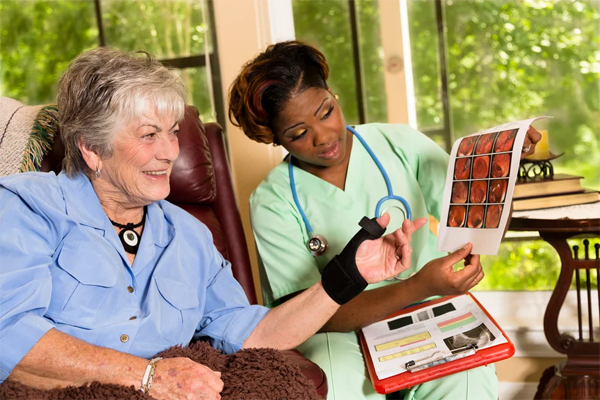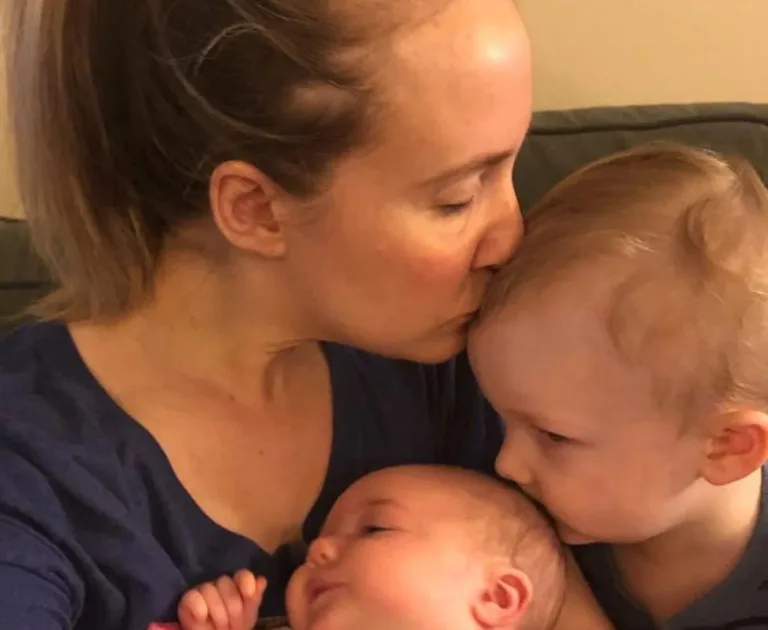Medically reviewed by Dr. Robert Nagourney
Designed by Megan Schofield
Colorectal cancer begins in the large intestine (colon) or the rectum. Most cases start as a growth (called a polyp) on the inner lining of the colon or rectum.
Colorectal cancer is:
- Common
It’s the 3rd most common cancer in men and women in the United States, not including skin cancers.
- Deadly
It’s the 2nd most common cause of cancer deaths in men and women combined.
- Preventable
Screening can find precancerous polyps, allowing them to be removed before they turn into cancer. It can also detect colorectal cancer in the early stages, when it’s easier to treat.
Colorectal cancer may not cause symptoms, but if it does, they include:
- Changes in bowel habits, including diarrhea or constipation
- Rectal bleeding
- Blood in your stool
- Cramping
- Stomach or low back pain
- Bloating
- Anemia
- Unexplained weight loss
- Tiredness
Don’t assume you’re too young for colorectal cancer.
- About 1 in 5 people diagnosed with colorectal cancer are between ages 20 and 54
- Because of missed symptoms and misdiagnosis, young people with colorectal cancer are more likely to be diagnosed in stage 3 or 4, when the disease is harder to treat.
The best way to reduce your risk of colon cancer? Regular screening.
The 5-year survival rate of people with localized (early) stage colorectal cancer is 90%. If the cancer has spread to distant parts of the body, the 5-year survival rate is 14%.
Talk to your healthcare provider (HCP) about colorectal cancer
- Don’t be embarrassed to bring up your symptoms! For you, it might be awkward but for your HCP, it’s just another day at the office.
- Let your HCP know if you have a family history of colorectal cancer. As many as 1 in 3 people who develop colorectal cancer have other family members who have had the disease.
- Ask about screening — whether it’s time for you to start and which test is right for you. Since colorectal cancer often doesn’t cause symptoms, early detection through screening could save your life.
- Be your own advocate. Don’t let shame or stigma keep you from explaining your symptoms or sharing your concerns.
You can’t die of embarrassment, but you can die of colorectal cancer.
















